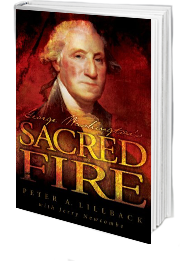America’s Pilgrim Heritage
Our American Thanksgiving is about more than turkey and football! This annual autumn feast goes back to the Pilgrims and puritans who settled in New England and established America’s earliest constitutional governments.
The pilgrims had previously fled to Holland to escape the religious policies of King James. Their trip from Holland to the new world was planned for Virginia. Instead, they were blown off course and landed at Plymouth Rock in Massachusetts. Since they were landing in an area that had no clear governmental oversight, they determined that they should establish a political entity of their own before they landed at Cape Cod.
The Mayflower Compact was adopted on Nov. 11, 1620–“The first time in recorded history that free and equal men had voluntarily covenanted together to create their own new civil government.” Following a near fatal winter, the first Pilgrim Thanksgiving was held. In 1647, William Bradford, governor of Plymouth Plantation, wrote his classic work, Of Plymoth Plantation. Therein he states:
Thus out of small beginnings greater things have been produced by His hand that made all things of nothing, and gives being to all things that are; and as one small candle may light a thousand, so the light here kindled has shone to many, yea in some sort to our whole nation; let the glorious name of Jehovah have all the praise.
Going forward, this Compact would lead the way for each of the colonies. Connecticut, for example, is still known as “The Constitution State” because the 1638 constitution of the Connecticut Colony served as the model for the other Colonies, and thus ultimately for the United States Constitution. Known originally as the Fundamental Orders of Connecticut, its first words were:
For as much as it has pleased the almighty God by the wise disposition of His divine providence so to order and dispose of things. . . .
These references to providence reflected the Pilgrims’ deep faith in God seen in the first thanksgiving celebration. Following a time of great suffering, the Pilgrims’ first harvest prompted them to have a time of giving thanks. Their Indian friends were invited, and some 90 braves arrived. They brought deer and wild turkey, so there was plenty for all. In the subsequent Thanksgivings, since this became an annual feast, each person was served five kernels of corn. This was done to remind them of their rations of corn in the bleakest period during their second winter.


The Pilgrims’ faith in divine Providence carried them through these difficult times. Again from William Bradford:
But these things did not dismay them (though they did sometimes trouble them) for their desires were set on the ways of God, and to enjoy His ordinances; but they rested on His Providence and knew whom they had believed.
Recognition of God’s providential care in the planting of the new nation continued on into the twentieth century. On Memorial Day 1923, for example, Vice-President Calvin Coolidge, not knowing that in the short span of three months, he would become President following the death of President Warren G. Harding, reminded Americans of the vision of the Puritan settlers to New England. He explained:
They were an inspired body of men. It has been said that God sifted the nations that He might send choice grain into the wilderness… Who can fail to see in it the hand of destiny? Who can doubt that it was guided by a Divine Providence?
And forty years later, on the fateful date of November 22, 1963, President John F. Kennedy had intended to remind America of her destiny as a nation under God’s care. The speech he had planned to give in Dallas on the tragic day of his assassination concluded with America’s destiny and the care of God:
We in this country, in this generation, are – by destiny rather than choice – the watchmen on the walls of world freedom. We ask, therefore, that we may be worthy of our power and responsibility, that we may exercise our strength with wisdom and restraint, and that we may achieve in our time and for all time the ancient vision of peace on earth, goodwill toward men. That must always be our goal … For as was written long ago, “Except the Lord keep the city, the watchman waketh but in vain.
From Plymouth Rock in the 1600’s to Dallas in 1963, our nation’s leaders believed the care and destiny of the city was under the watchful eyes of the Lord’s providence.
